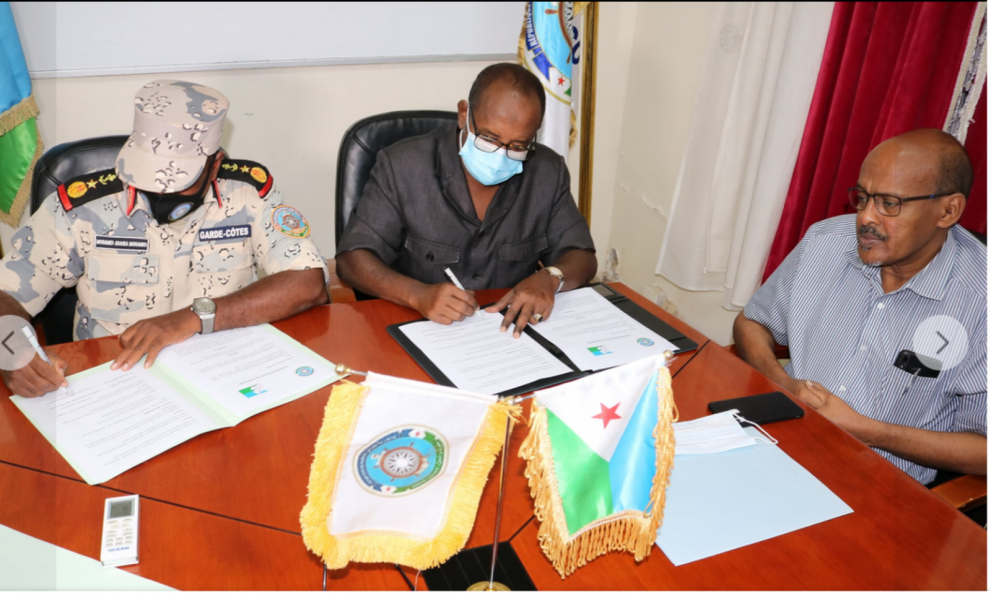
The Djiboutian Commission Nationale des Droits de l’Homme (CNDH) signed several Memoranda of Understanding on cooperation in the field of human rights with the national police, the coastguard and three local civil society organisations (CSOs). This indicates an important step to strengthen human rights in Djibouti as it formalises joint actions in the field.
“Together, human rights in general and in particular in the field of migration are promoted and protected,” said Saleban Omar Oudin, the President of the CNDH. Due to their high vulnerability to human rights abuses, migrants are amongst the groups on whom the agreements put a particular focus. Often out of necessity, many migrants travel irregularly, making them vulnerable to economic exploitation, physical abuse, sexual assault, and other forms of rights violations. As a key transit country for migrants within the Horn of Africa, Djibouti is strengthening its efforts in protecting and promoting human rights for these migrants.
These developments have been made possible thanks to the Better Migration Management programme, funded by the European Union and Germany. It supports the CNDH and different state and non-state actors in safeguarding migrant rights.
Cooperating with the police and the costguard
The two agreements with the police and the coastguard formalise the existing cooperation in the legal protection of victims of human rights violations. The CNDH, together with both authorities, will monitor these violations, protect the victims and ensure a judicial follow-up of their cases. Constant exchange and the referral of cases from the CNDH to the law enforcement agency and the other way around will improve the assistance of victims in their best interest. The CNDH will function as an advisor for cases the authorities encounter and make recommendations on how to improve their actions. The observations and recommendations will also be presented to the government to advocate the adjustment of the legal framework to the needs on-site.
Strenghtening collaboration with CSOs
The cooperation between the CNDH and the CSOs (l'Union Nationale des Femmes Djiboutiennes, Caritas and L'Agence Nationale Des Personnes Handicapées) will focus on the prevention of human rights abuses and care and support for victims. As a central authority in the field, the CNDH will support the CSOs through information sharing and training on human rights and migration topics. This will enable CSOs to identify victims of human rights violations and refer them to the CNDH which will monitor the violations, protect the victims and ensure a judicial follow-up of their cases. The CNDH plans to sign Memoranda of Understanding with further ten CSOs.
Background:
The Better Migration Management (BMM) programme is a regional programme funded by the EU Emergency Trust Fund for Africa and the German Federal Ministry for Economic Cooperation and Development (BMZ) to promote safe, orderly and regular migration in the Horn of Africa. It supports the national authorities in the partner countries in facilitating migration management grounded in a human-rights-based approach. BMM supports CNDH to strengthen its role in protecting and promoting human rights within the field of migration.
Details
- Publication date
- 11 June 2021
- Region and Country
- Djibouti
- Thematic
- Improved migration management
- Partner
- GIZ
